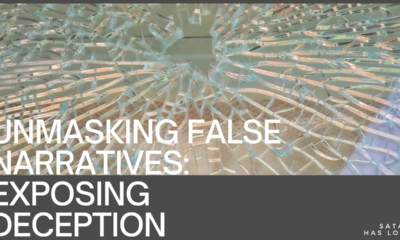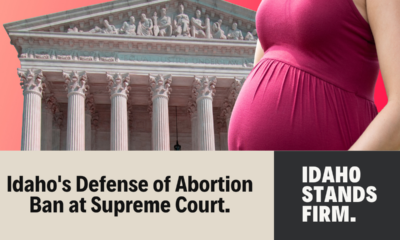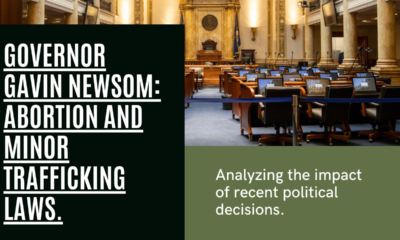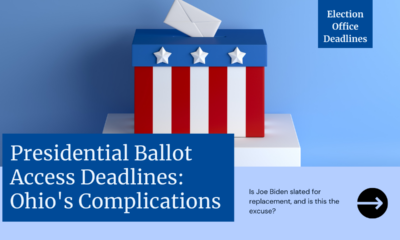First Amendment
Trump responds to Twitter Files
Donald Trump responded to the Twitter Files last week with a program that seems reasonable – and we don’t have to wait for it.
Donald Trump has not ignored the Twitter Files. Recall that he talked about the very first installment, on his own platform, Truth Social. Last Thursday (December 15) he talked at greater length, after the release of the installment describing how Twitter finally banned him by executive fiat. He has proposed five specific measures to address the abuses the Twitter Files threads have revealed.
Where did we hear from Trump?
Donald Trump actually made two announcements last Thursday. The first, evidently, was his sale of “Non-fungible Tokens” (NFTs). At least one Twitter user suggested it was a feint, to get his enemies to drop their guard.
If so, why he should feel the need to do that, is difficult to imagine. (At last report, all those NFTs sold out within twenty-four hours.)
In any case, the real announcement came out two hours later. Jack Posobiec, editor of Human Events, embedded the video at 12:15 p.m. EST.
American Action News then published a transcript, in addition to embedding the tweet. In the video, Trump addresses the Twitter Files thus:
In recent weeks Bombshell reports have confirmed that a sinister group of deep state bureaucrats, silicon valley tyrants. left-wing activists, and depraved corporate news media, have been conspiring to manipulate and silence the American people. They have collaborated to suppress vital information on everything from elections to public health. The censorship cartel must be dismantled and destroyed and it must happen immediately.
The five-part plan
The Trump Plan to respond to the Twitter File revelations begins with specific measures to stop any such cooperation. This includes, first, forbidding any department or agency to “collud[e] with any organization, business or person to censor, limit, categorize, or impede the lawful speech of American citizens.” This also includes:
- Defunding any programs to label speech as “mis-, dis-, or malinformation,” and:
- Firing every federal officer, agent, or other employee engaged in such behavior.
Second, he would task his Attorney General with investigating and prosecuting any violations of federal law that occurred. He flatly accused those involved of violating federal civil rights, campaign finance, election, securities, and antitrust law. Trump also suggested Hatch Act violations. (The Hatch Act forbids any government employee to do any politicking on the job. Selective application of any policy against political opponents would almost certainly qualify.)
Third, he would ask Congress to revise Section 230 of the Communications Decency Act, to revoke the privileged status of platforms who behave like publishers, with all the selectivity that implies.
Fourth, he proposes defunding any private groups who cooperated with such censorship as the Twitter Files has revealed. He specifically singled out colleges and universities who receive federal funds. Trump then suggested enacting new laws to penalize federal officers who urge private actors to become State actors. In line with this, Trump said that no “employee” of the FBI, CIA, DNI, DHS, or DOD should take a job with a Twitter-like company for seven years.
The Digital Bill of Rights
That last part refers to invasions of privacy. What sets Twitter and other social media apart is their maintenance of vast troves of user data.
Last of all, Trump proposed a Digital Bill of Rights. Interestingly, Trump addressed FBI communications with Twitter before the release of Twitter Files Six describing the full extent of Twitter’s cooperation with the FBI. The first elements of this Digital Rights might read something like this:
No user of any social medium shall, at the behest of any government agency, have his digital content removed from such medium without due process of law.
Said “due process” would involve an order from a court of competent jurisdiction. Trump proposed that anyone subject to suspension, “shadow-banning” (or “visibility filtering”), or the like, be entitled to:
- Notice of any such action and the grounds therefor, and
- The right to a “timely appeal.”
His next proposal was the most radical: that any user, who is eighteen years of age or older, should have the right to opt out of content moderation or curation.
Analysis of the Trump plan
Recall: seven plaintiffs filed a major lawsuit against the government for its use of Facebook and Twitter as State actors. The plaintiffs include:
- The Attorneys General of Missouri and Louisiana,
- A biochemist at Stanford University who suffered such censorship when disputing the “COVID Narrative,” and
- At least one journalist, who writes for The Gateway Pundit.
The Intercept first revealed actual activities the suit alleged. The Twitter Files confirm this for Twitter, and logically one might expect a “Facebook Files” to have similar evidence. Step One would also address these activities. Happily the case of Missouri ex rel. Schmitt et al. v. Biden et al. is moving through the courts now.
Step Two reminds us that the present Attorney General, Secretary of Homeland Security, and other civil officers have committed impeachable offenses. The House of Representatives could and should start investigating the plethora of violations in the next Term of Congress.
Revising Section 230 is already subject to debate. Andrew Torba, builder of the Gab Empire, wants Section 230 left alone. He regards the willingness of Twitter and others to “play ball” with the government as a selling point for the services he offers. Besides, he trusts no one not under his direct employ, it seems.
The proposal to defund colleges, universities, and think tanks involved in online censorship raises another question. Justice Clarence Thomas has already suggested that any private entity who censors another on the government’s say-so, violates the First Amendment.
Is the Digital Bill of Rights feasible?
The first part of that Digital Bill of Rights should come when Missouri v. Biden goes for a verdict. Again, Clarence Thomas’ concurrence suggest that Americans already have that right. Users of Gab definitely have it. Andrew Torba is on record refusing to censor anyone at the behest of any government, State, federal, or foreign.
Elon Musk already pledges to make the second part a matter of Twitter policy. He could do better by adopting the very simple terms of service and “content standards” of Gab. Likewise, Andrew Torba would do well to inform an offender at once what policy he has violated.
The third policy would be the most difficult of all to justify. That would, at first view, seem to allow someone to publish material that would clearly violate federal or State law. This goes to the simple standards Gab has. Gab will not be an accessory to copyright or patent infringement, threats, or sexual exploitation (of adult or child). Letting a user opt out of all content moderation or curation puts the platform at obvious risk. The Gab example clearly shows that some content standards are necessary – and need not violate anyone’s rights.
Like your telephone
Trump has room to criticize, not only by reason of what happened to him, but because social media are comparable to telephone service. Many platforms have in fact tried to supplant conventional telephony. When they do that they must respect users’ reasonable expectation of having access to a means of communication. The laws of nearly every State already make it unlawful to use the telephone to threaten another person. Applying the same standard to social media should be all that a person of good heart should need or expect.
The Trump Anti-censorship Plan is a good start, especially regarding the activities of government bureaucrats. Furthermore, those who value their freedom need not necessarily wait for Trump to return to office, or for someone like him to take office. At least one platform has never played like a State actor. The courts can and should take care of those that have.
Terry A. Hurlbut has been a student of politics, philosophy, and science for more than 35 years. He is a graduate of Yale College and has served as a physician-level laboratory administrator in a 250-bed community hospital. He also is a serious student of the Bible, is conversant in its two primary original languages, and has followed the creation-science movement closely since 1993.
-

 Executive4 days ago
Executive4 days agoThe Hunters Have Now Become The Hunted: Their Cruelties Are Swelling The Ranks Of The People Worldwide!
-

 Clergy3 days ago
Clergy3 days agoWhy Do The American People Let The Corrupt Media & Politicians Set The Propaganda Narrative – Speak On Their Behalf
-

 Constitution4 days ago
Constitution4 days agoCHAPTER 9: Norman Dodd Interview Space Is No Longer the Final Frontier––Reality Is [upcoming release April 2024]
-

 Entertainment Today4 days ago
Entertainment Today4 days agoCivil War (2024) – an incomplete prediction
-
![CHAPTER 10: Objective Reality Is Required for a Free Society Space Is No Longer the Final Frontier—Reality Is [upcoming release May 2024]](https://cnav.news/wp-content/uploads/2024/04/Objective-reality-v-acceptance-400x240.png)
![CHAPTER 10: Objective Reality Is Required for a Free Society Space Is No Longer the Final Frontier—Reality Is [upcoming release May 2024]](https://cnav.news/wp-content/uploads/2024/04/Objective-reality-v-acceptance-80x80.png) Education3 days ago
Education3 days agoCHAPTER 10: Objective Reality Is Required for a Free Society Space Is No Longer the Final Frontier—Reality Is [upcoming release May 2024]
-

 Human Interest2 days ago
Human Interest2 days agoIdaho prepares to defend its abortion ban
-

 Executive5 days ago
Executive5 days agoNational Security Implications of Baltimore Bridge Catastrophe
-

 Executive5 days ago
Executive5 days agoCalifornia Dems Tout Ties to Criminal Leniency Group










